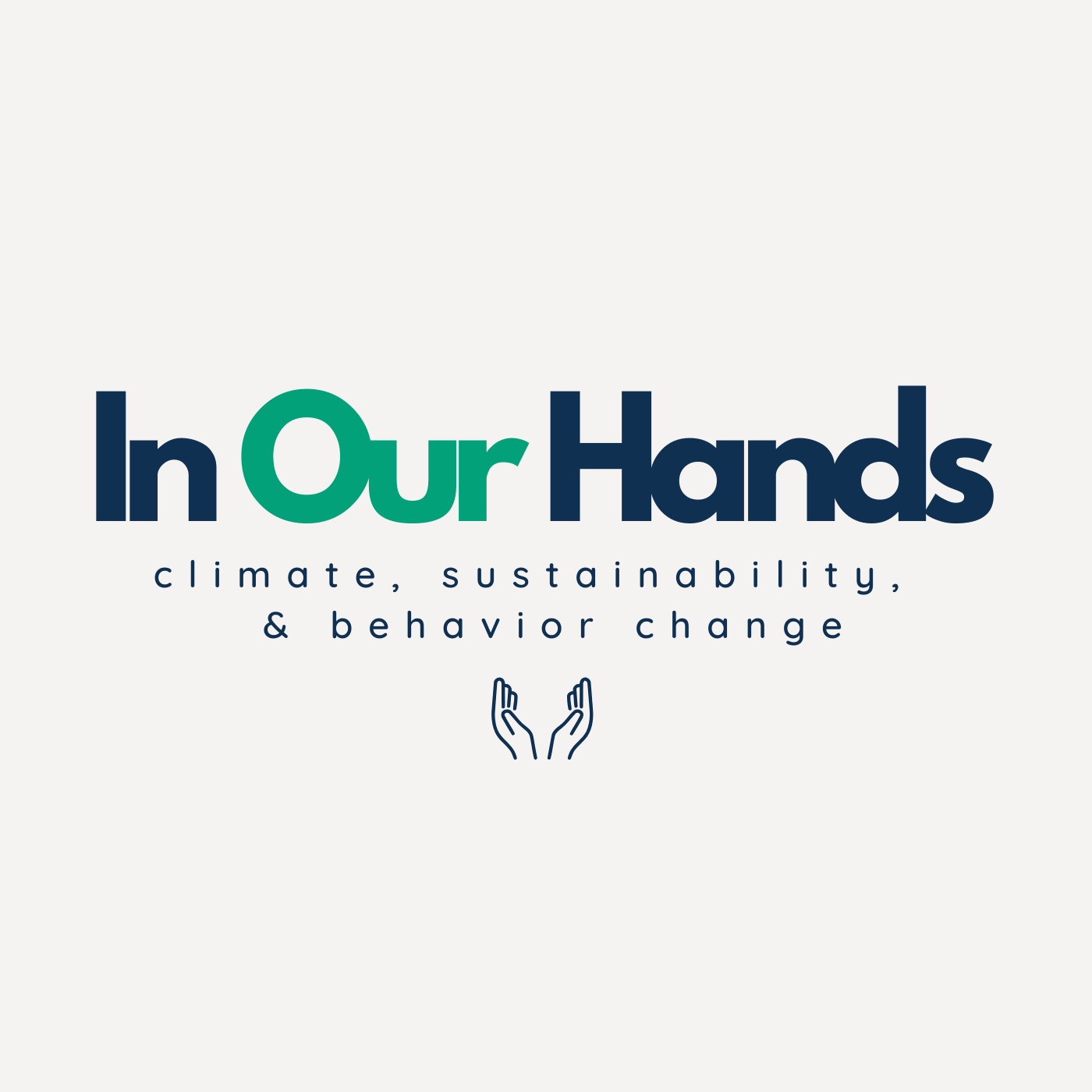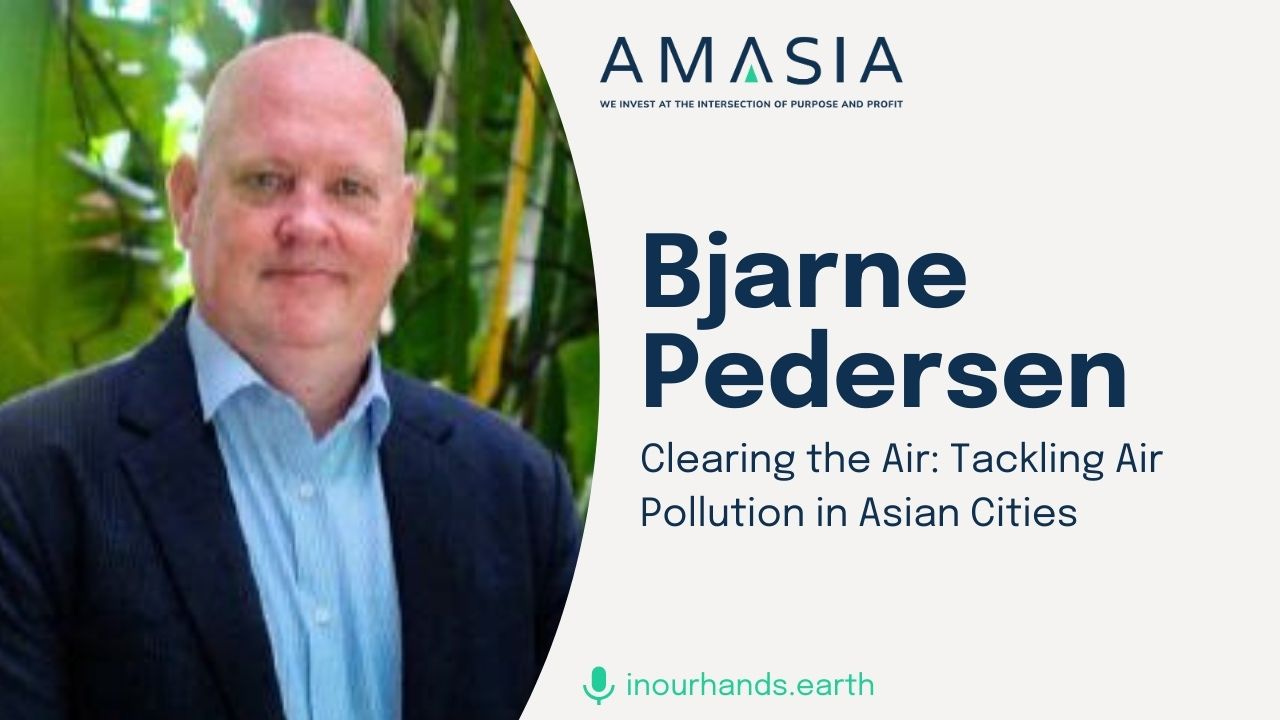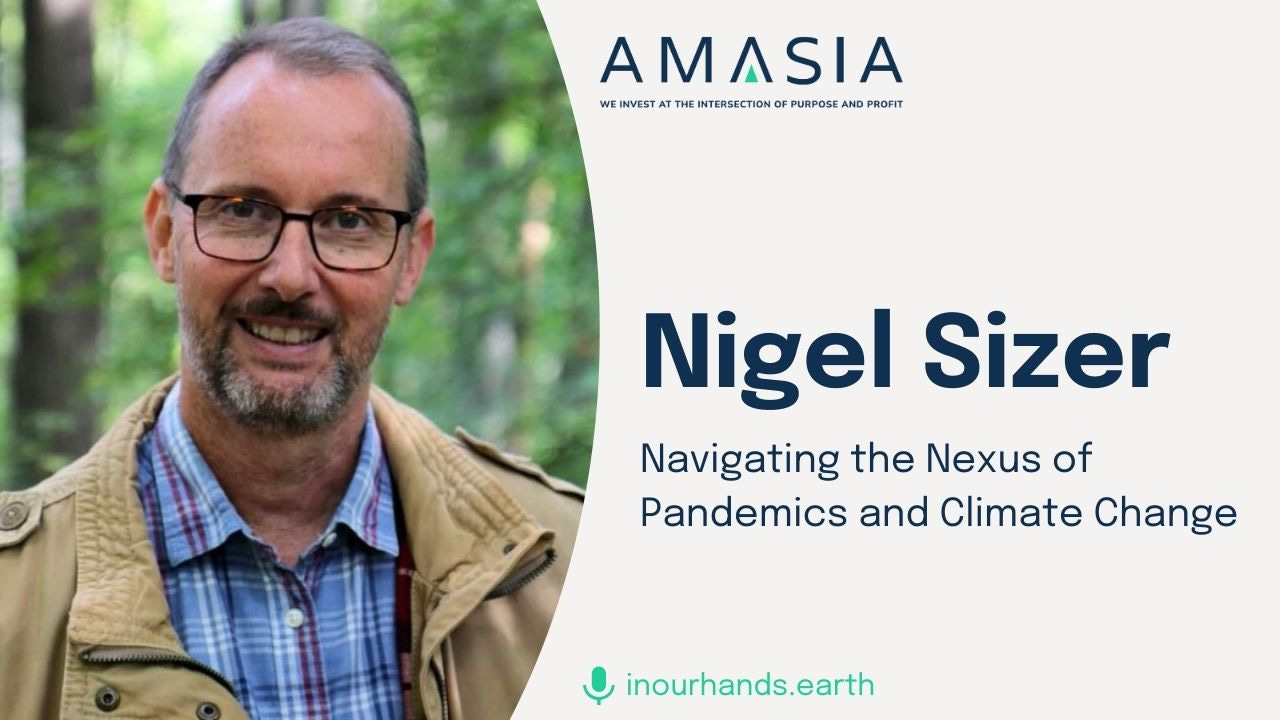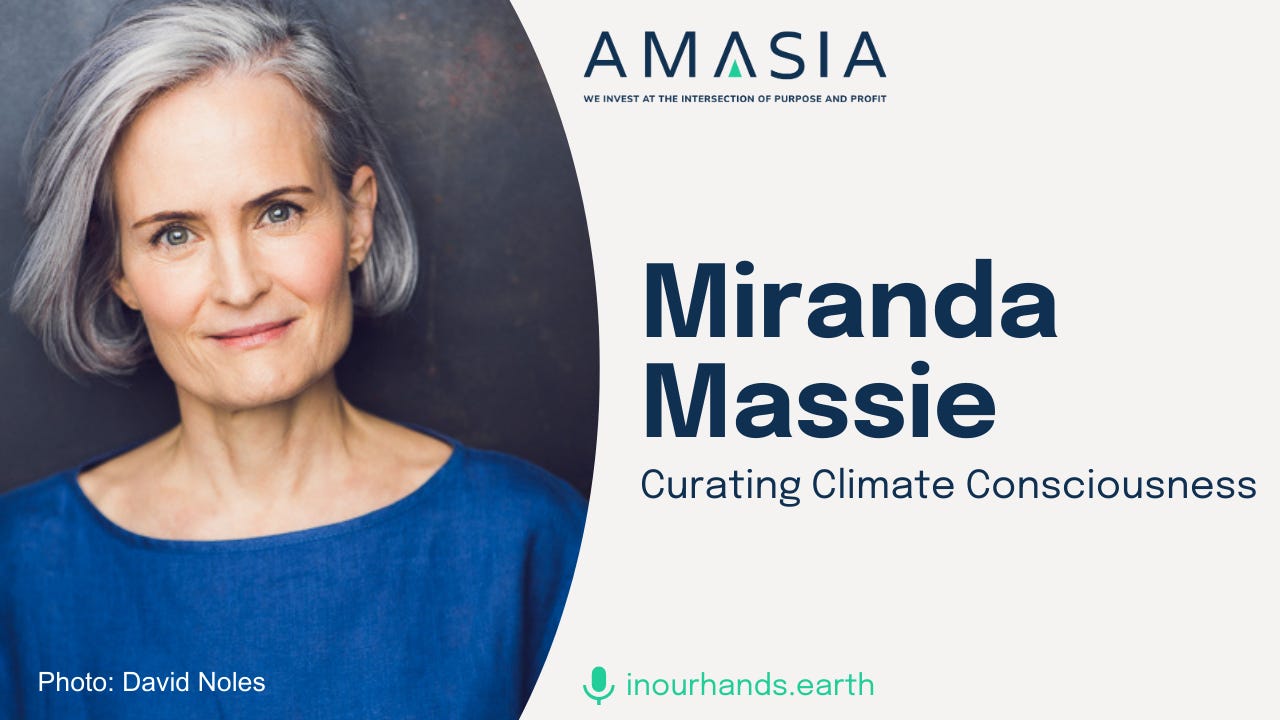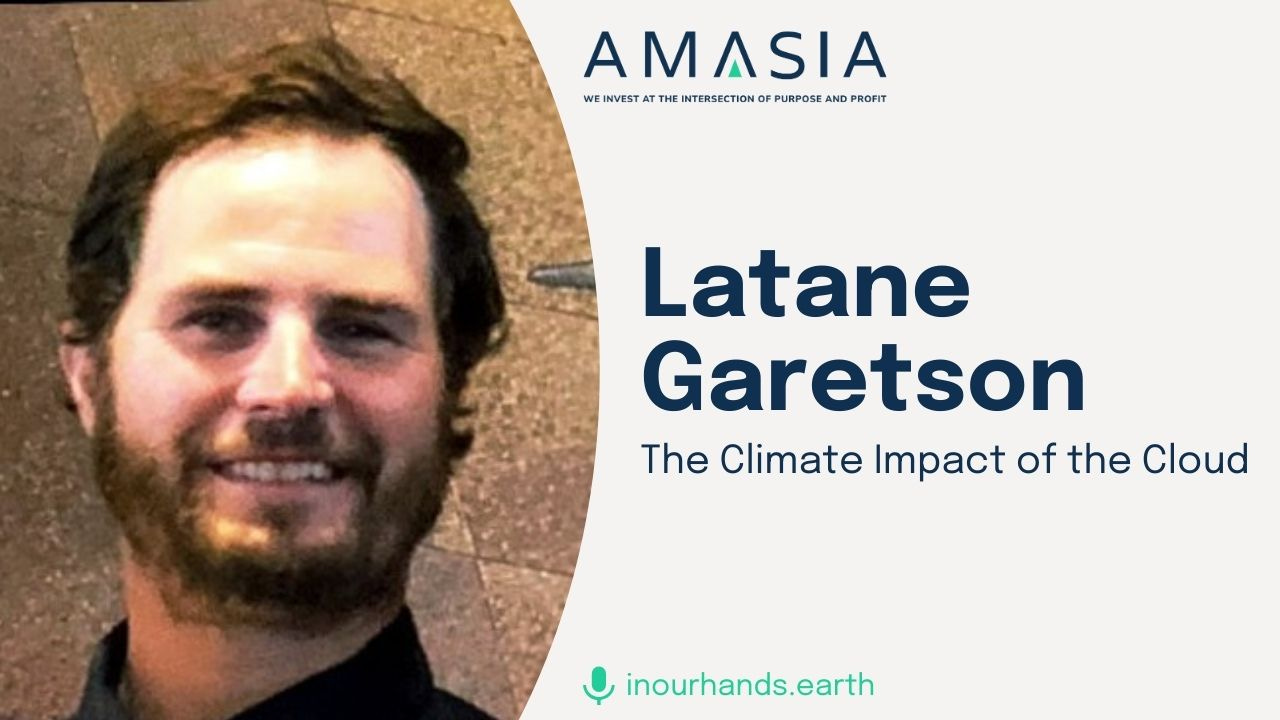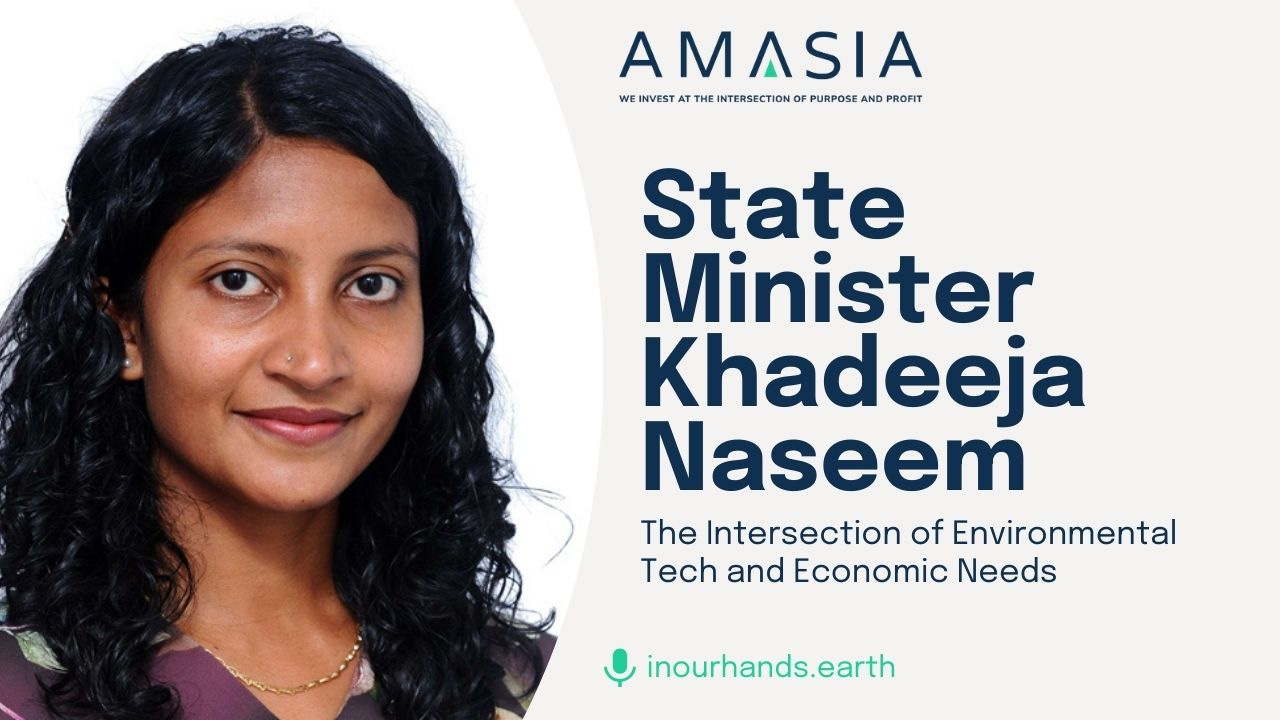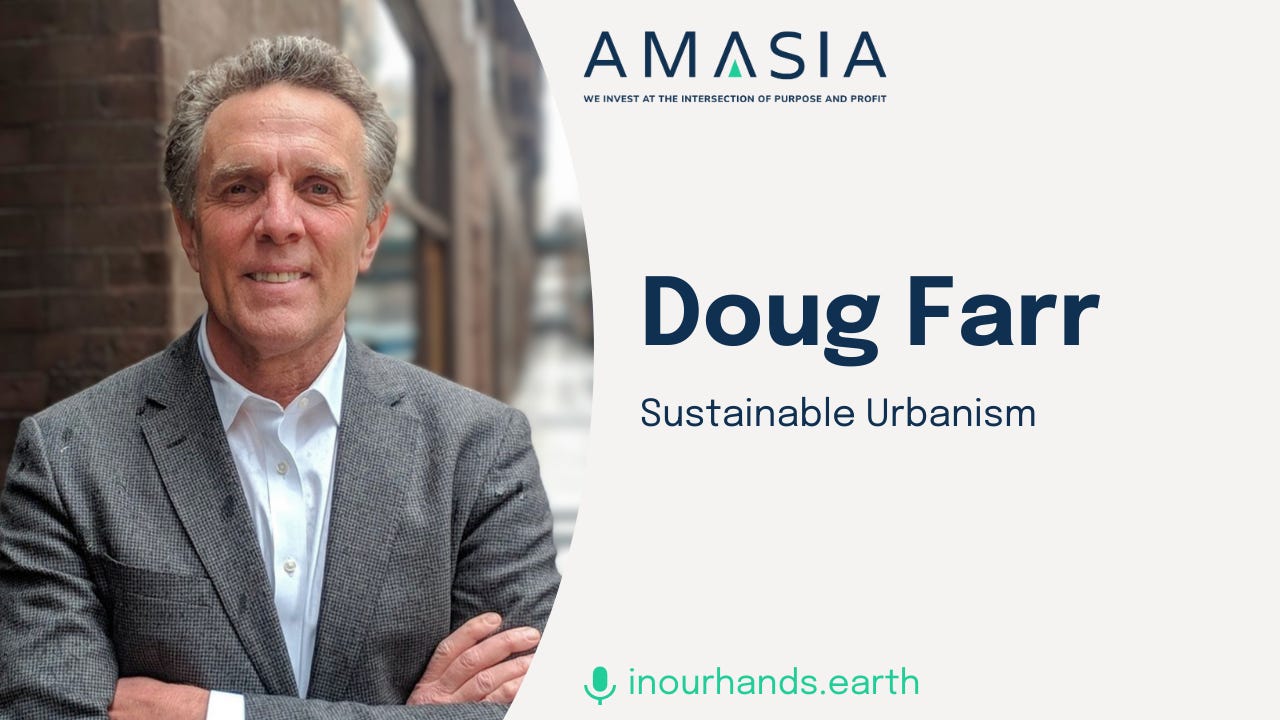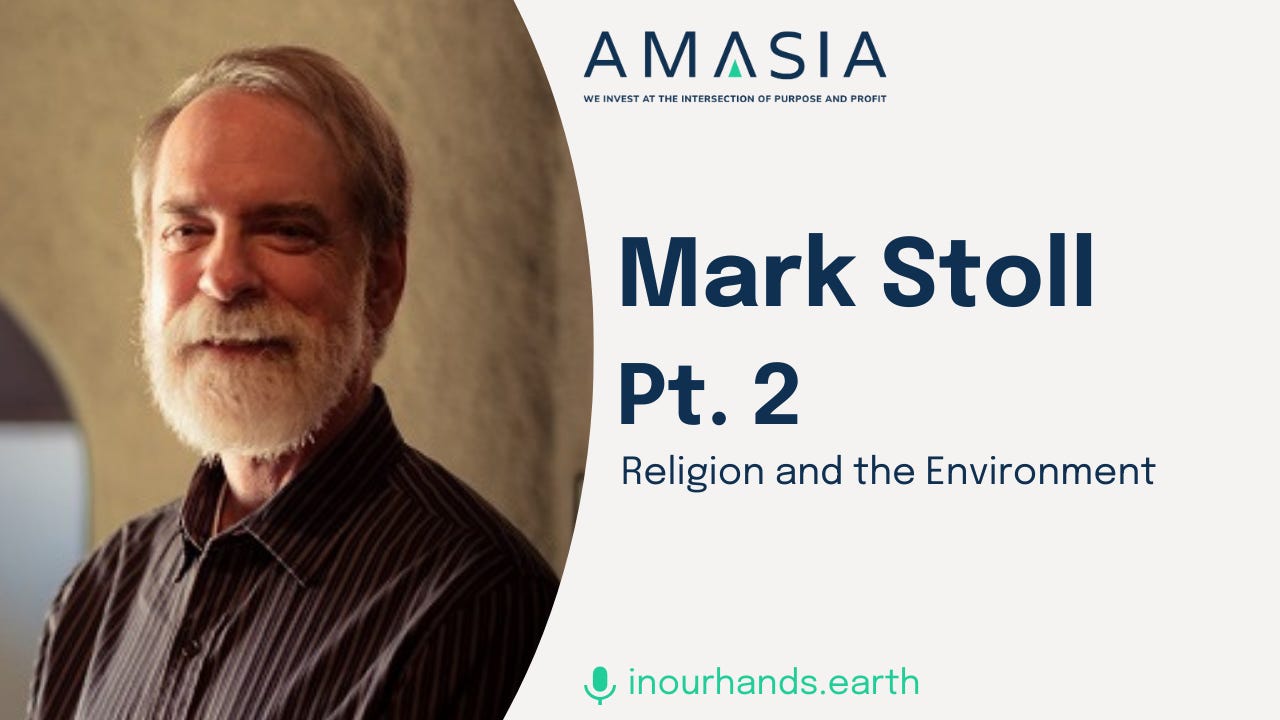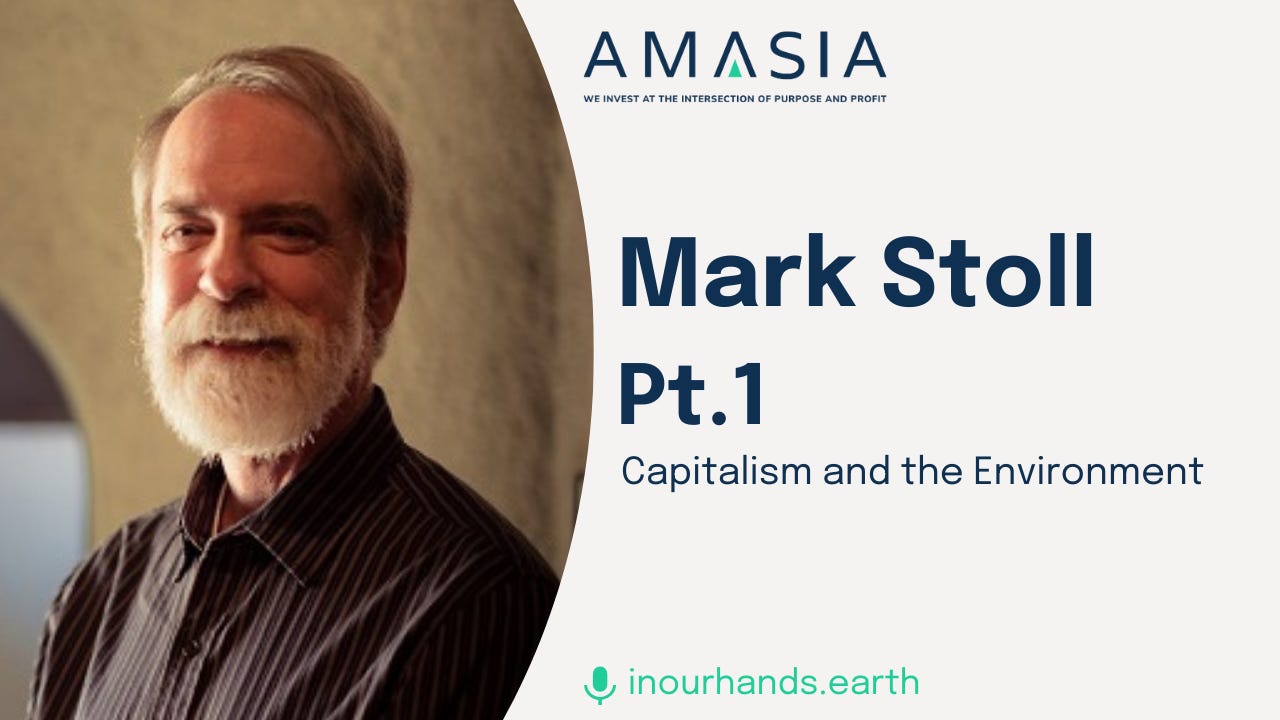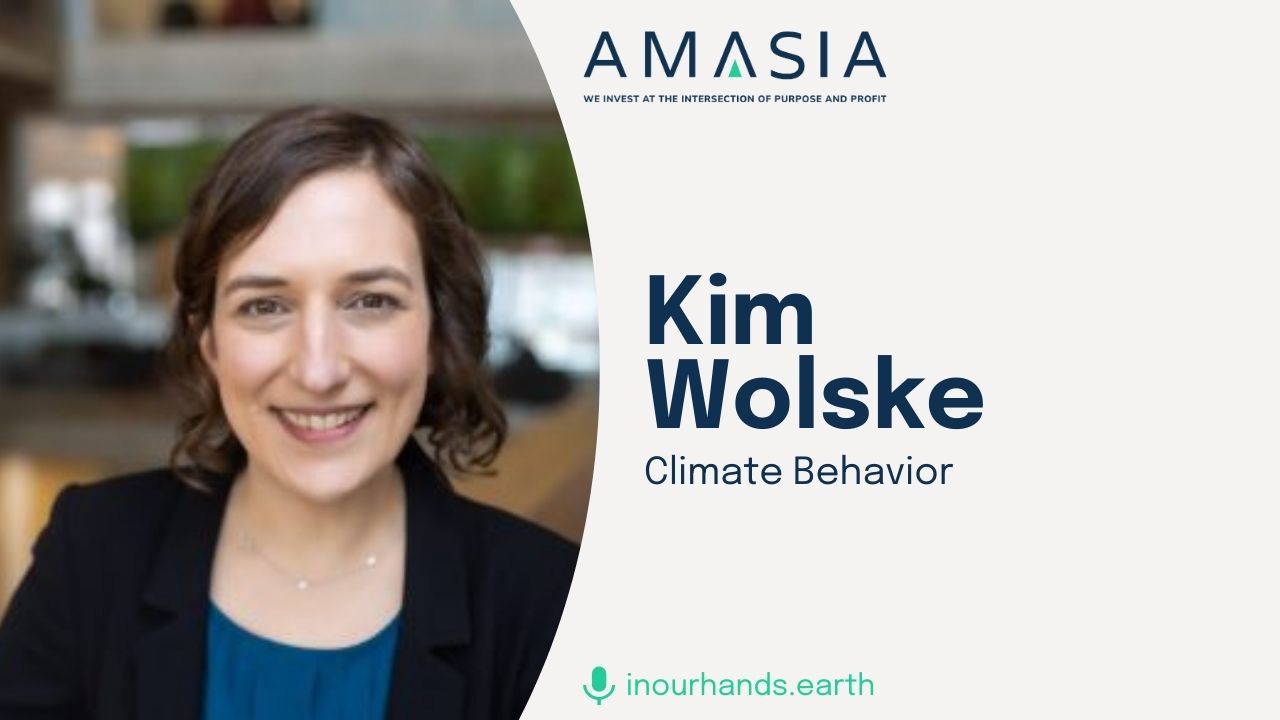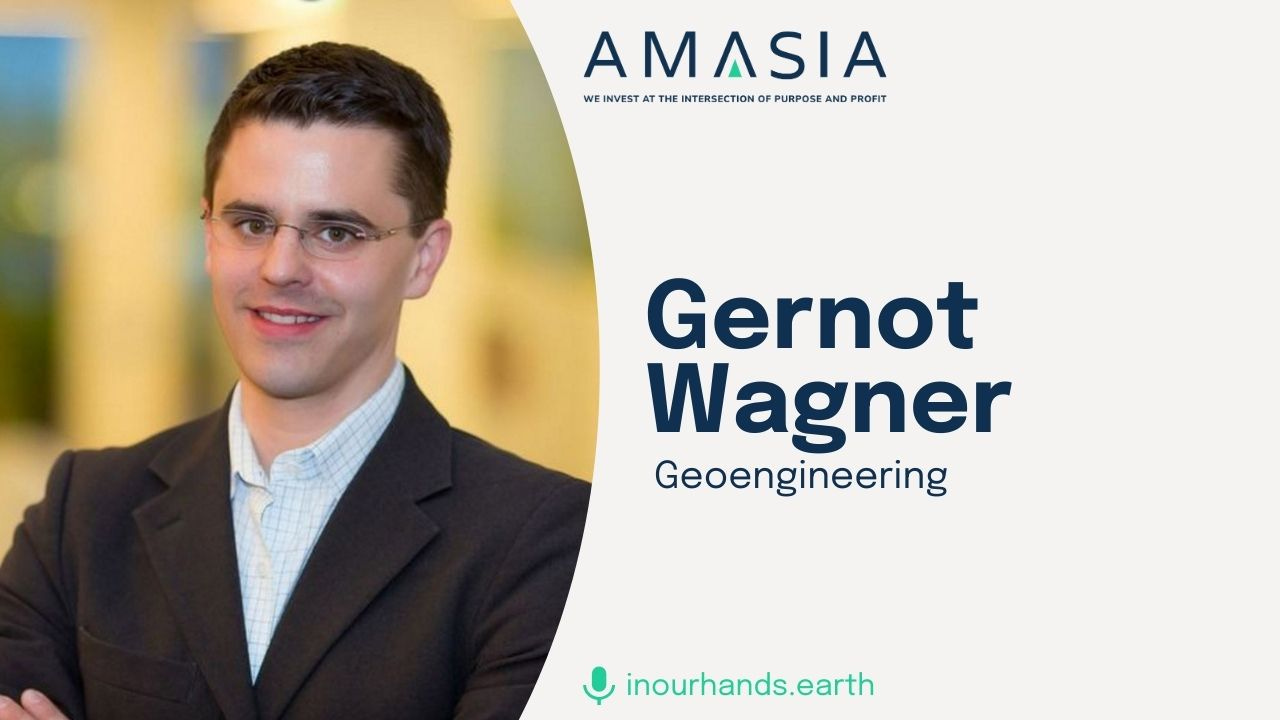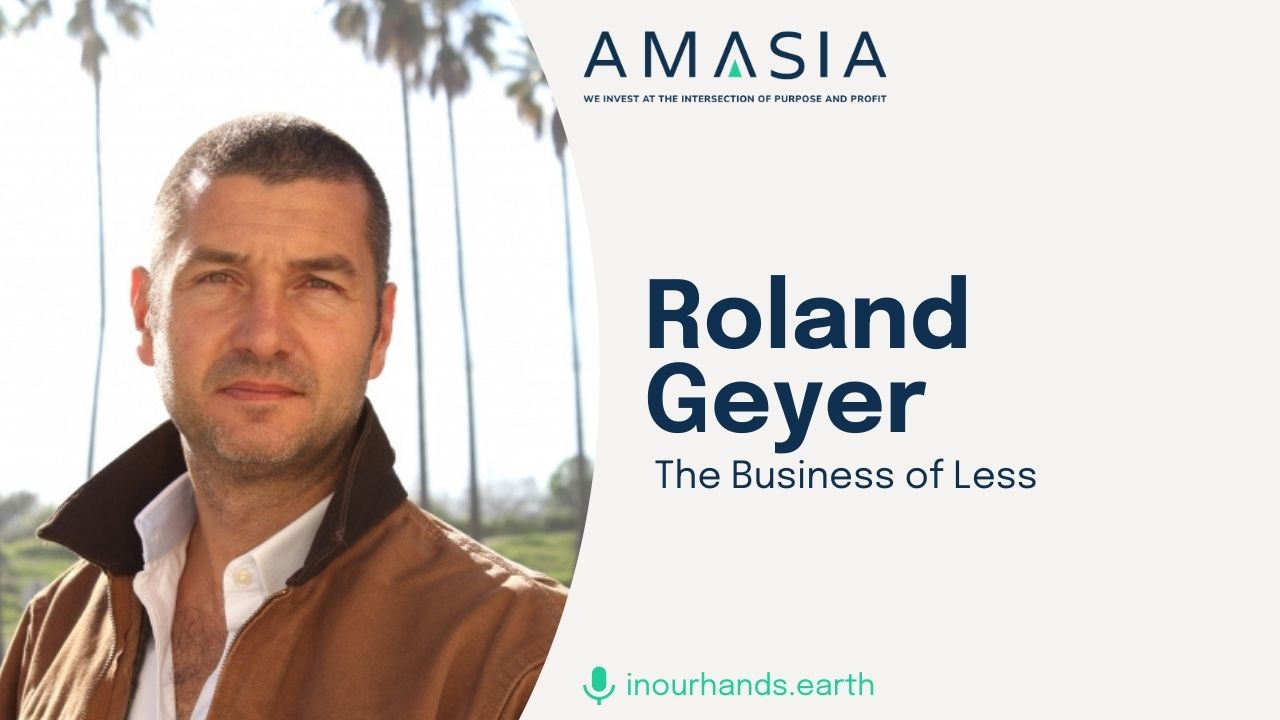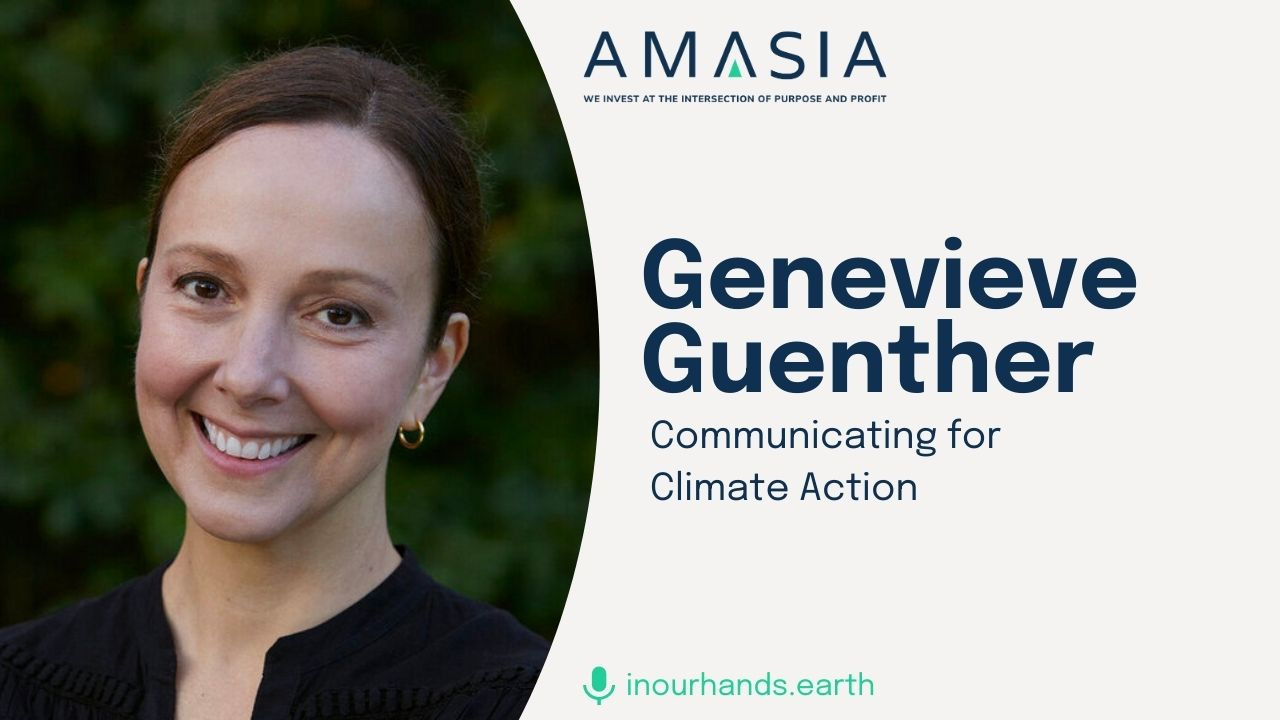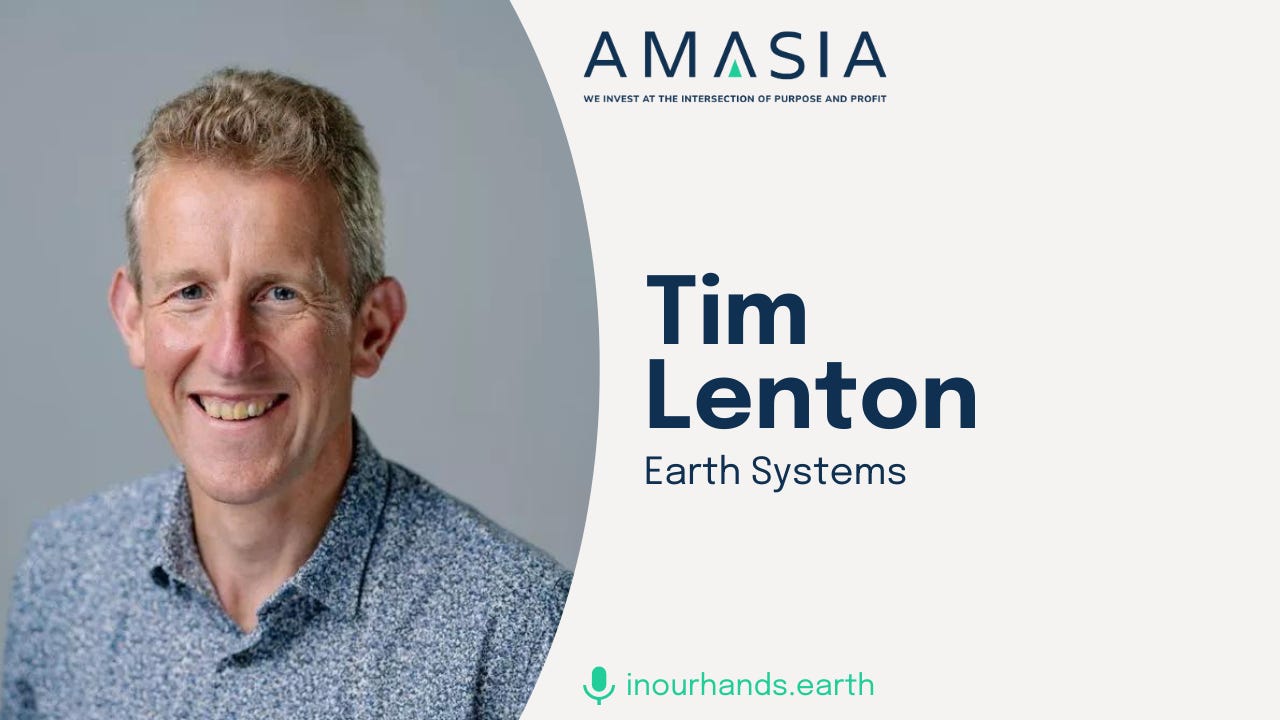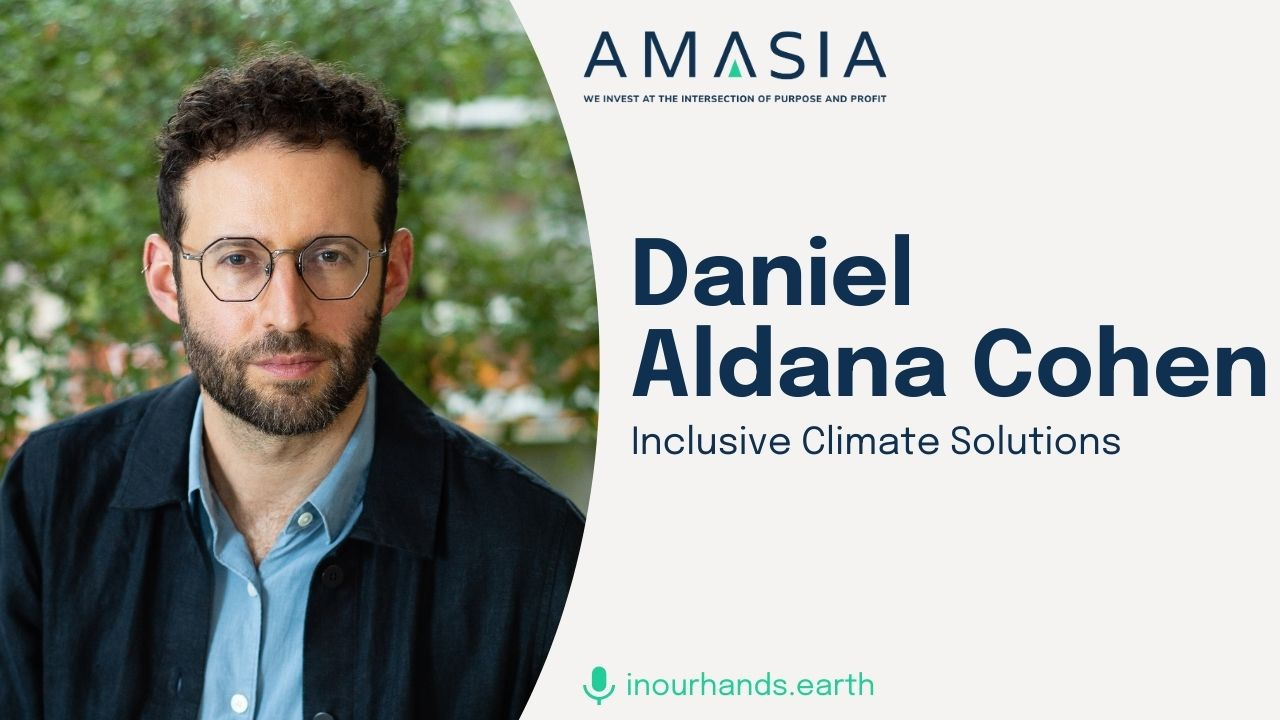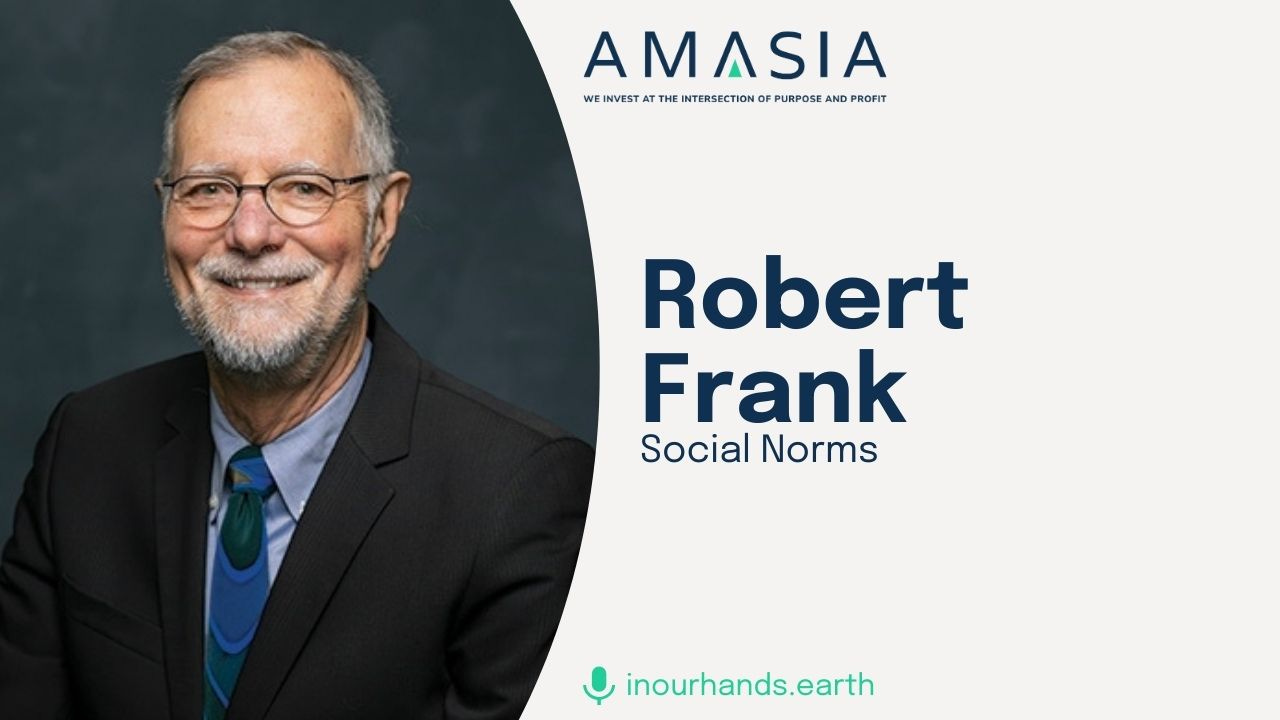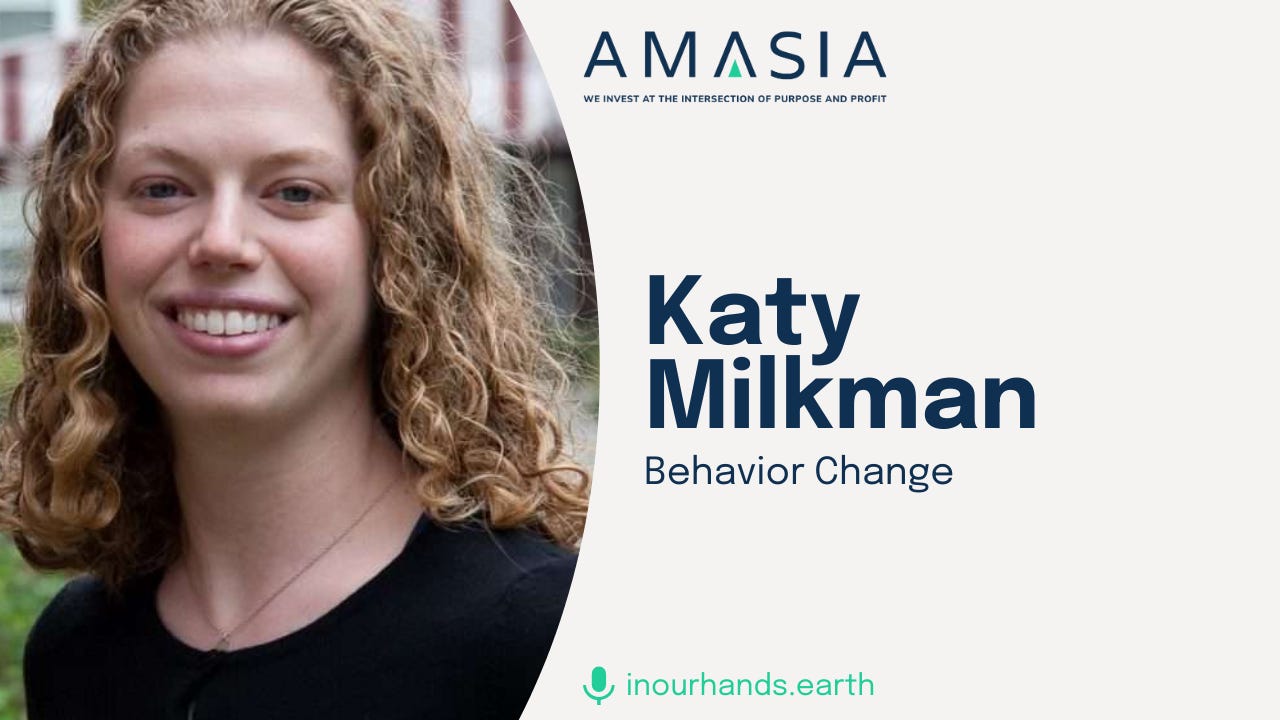Discover In Our Hands
In Our Hands

In Our Hands
Author: Ramanan Raghavendran
Subscribed: 0Played: 6Subscribe
Share
© Ramanan Raghavendran
Description
In Our Hands is a podcast that brings you voices tackling the real-world trade-offs, tensions, and innovations that shape our planet's future from sustainability to AI. No easy answers here, just honest conversation about our shared future.
www.inourhands.earth
www.inourhands.earth
26 Episodes
Reverse
In this episode of In Our Hands, Ramanan Raghavendran interviews renowned scholar Kate Crawford about AI's environmental impact, societal implications, biases, and material costs.Time stamps and the full transcript at the website. This episode is also available on Apple Podcasts and Spotify. This is a public episode. If you would like to discuss this with other subscribers or get access to bonus episodes, visit www.inourhands.earth
In this episode of In Our Hands, Ramanan Raghavendran speaks with Lucas Joppa, Chief Sustainability Officer at Haveli Investments. They discuss his journey from environmental scientist to Microsoft’s first Chief Environmental Officer and transition to private equity. They explore the significance of sustainability in investments, the push for net-zero solutions, and the changing landscape of sustainable investing.Time stamps and the full transcript at the website. This episode is also available on Apple Podcasts and Spotify. This is a public episode. If you would like to discuss this with other subscribers or get access to bonus episodes, visit www.inourhands.earth
In this episode of In Our Hands, Ramanan Raghavendran speaks with Bjarne Pedersen, Executive Director for Clean Air Asia. They discuss the link between air quality and climate change, the main sources of air pollution in Asian cities, the role of electric vehicles in reducing emissions, the importance of data collection, and the power of partnerships in driving air quality reform.(02:25) The Connection Between Air Pollution and Climate Change(04:57) Challenges and Solutions for Air Pollution in Asian Cities(12:25) The Impact of Data on Air Pollution Management(17:44) How Partnerships Tackle Complex Issues(18:28) NGO Initiatives to Combat Pollution and Promote Electric Vehicles(22:01) Strategies for Galvanizing Public Support for Air Quality Reform(25:32) Launching a Regional Knowledge Exchange InitiativeTime stamps and the full transcript at the website. This episode is also available on Apple Podcasts and Spotify. This is a public episode. If you would like to discuss this with other subscribers or get access to bonus episodes, visit www.inourhands.earth
In this episode of In Our Hands, Ramanan Raghavendran speaks with Nigel Sizer, executive director of the Preventing Pandemics at the Source Initiative. They discuss the connection between pandemics and climate change, emphasizing the risks posed by deforestation and the wildlife trade. This episode sheds light on the urgent need to address these issues to prevent future pandemics.Show Notes(01:47) From Cambridge Ecologist to Global Pandemic Prevention Leader(09:52) Debunking COVID-19 Lab Origin Theories(16:15) Pandemics, Politics, and Climate Change Interconnections(23:20) Preventing Pandemics by Protecting Natural Habitats and Regulating Animal Agriculture(25:50) What Should We Be Focusing On?(29:38) Assessing the Most Threatened Rainforest Regions Globally(32:33) Pandemic Preparedness and the Challenges of Political LeadershipIn Our Hands is a production of Amasia. Follow these links for more about our firm, the Amasia blog, our climate fiction podcast, and Ramanan’s blog. This is a public episode. If you would like to discuss this with other subscribers or get access to bonus episodes, visit www.inourhands.earth
In this episode of In Our Hands, Ramanan Raghavendran speaks with Miranda Massie, visionary driving force, founder, and director of New York City’s Climate Museum. They discuss her lifelong dedication to social equity and how it transfers to her work at the Climate Museum, where she harnesses the expressive power of art to explore the simplistic yet profound mechanics of global warming and the scalable impact the arts can have in furthering climate awareness.Time stamps and the full transcript can be found on the episode page.Show Notes(02:04) Miranda’s early life and education(06:29) How fossil fuels disrupt weather systems(7:20) The inspiration behind The Climate Museum(11:14) The power of art in creating emotional connections and empowering action(14:20) Community and creativity(19:24) The Climate Museum: Future vision(23:36) How to find out more about the museumIn Our Hands is a production of Amasia. Follow these links for more about our firm, the Amasia blog, our climate fiction podcast, and Ramanan’s blog. This is a public episode. If you would like to discuss this with other subscribers or get access to bonus episodes, visit www.inourhands.earth
In this episode of In Our Hands, Ramanan Raghavendran speaks with Akshat Rathi, author and London-based senior reporter for Bloomberg News, author of the book "Climate Capitalism.”Ramanan and Akshat delve into the fascinating realm of capitalism's role in tackling the climate crisis. Discover how the synergy of government policies and clean technologies can contribute to a sustainable future while exploring the evolving social responsibility of corporations and the media's crucial role in aligning with progress.Time stamps and the full transcript can be found on the episode page.Show Notes[01:55] Akshat Rathi's transition from organic chemistry to journalism[05:06] Capitalism and climate can work together[07:32] The role of governments in enabling the deployment of technologies[10:03] The combination of people, policy, and technology for change[12:23] Flow batteries and the work of Form Energy[15:23] The changing social responsibility of corporations and the role of climate[18:26] The necessity of behavior change in tackling the climate crisis[21:02] The media landscape and the focus on negative newsIn Our Hands is a production of Amasia. Follow these links for more about our firm, the Amasia blog, our climate fiction podcast, and Ramanan’s blog. This is a public episode. If you would like to discuss this with other subscribers or get access to bonus episodes, visit www.inourhands.earth
In this episode of In Our Hands, Ramanan Raghavendran speaks with Latane Garetson, Director of Physical Infrastructure at Dropbox.Garetson breaks down the physical infrastructure of data centers and their climate impact and then continues to discuss embracing efficiency technologies, setting targets to reduce environmental footprint, carbon offsetting, and why collaboration is key.Time stamps and the full transcript are available on the episode page.Show Notes[00:31] Latane Garetson intro[02:32] The physical infrastructure of the cloud and its impact on climate[04:32] Achieving 100% renewable energy for data centers[07:09] The economic benefits of energy efficiency in data centers[10:10] The challenges of getting renewable energy into multi-tenant buildings[12:29] Dropbox's leadership in sustainability[14:26] Is carbon offsetting the most impactful solution?[15:52] Motivating other companies to take action by understanding their impact[16:28] Investing in technologies for long-term benefitsThis episode is also available on Apple Podcasts and SpotifyIn Our Hands is a production of Amasia. Follow these links for more about our firm, the Amasia blog, our climate fiction podcast, and Ramanan’s blog. This is a public episode. If you would like to discuss this with other subscribers or get access to bonus episodes, visit www.inourhands.earth
In this episode of In Our Hands, Ramanan Raghavendran speaks with Khadeeja Naseem, the State Minister of the Environment, Climate Change, and Technology for the Maldives. They discuss the challenges and opportunities presented by the climate crisis, particularly for small island states like the Maldives, emphasizing the importance of strong leadership, political will, and taking the necessary actions to address the climate crisis and protect vulnerable nations. Time stamps and the full transcript are available on the episode page.This episode is also available on Apple Podcasts and SpotifyShow Notes[01:22] Hajja's Background and Decision To Join Politics[07:55] The Maldives' Vulnerability to Climate Change[14:41] The Importance Of Cutting Emissions [16:21] The Role Of Technology and Data In Addressing Climate Issues [19:01] Using Technology To Understand The Environment[21:57] The Importance Of Sustainable Fishing and eco-tourism [25:25] Using Agency To Push For Change [26:58] Empowering Individuals To Take ActionIn Our Hands is a production of Amasia. Follow these links for more about our firm, the Amasia blog, our climate fiction podcast, and Ramanan’s blog. This is a public episode. If you would like to discuss this with other subscribers or get access to bonus episodes, visit www.inourhands.earth
In this episode of In Our Hands, Ramanan speaks with architect and urbanist Doug Farr. Farr shares his sustainability journey and the work of firm, Farr Associates. They delve into Farr’s involvement in movement-building initiatives, the significance of community engagement and individual agency in driving change, and his book "Sustainable Nation," which focuses on urban design patterns and the need for climate action accelerants.Time stamps and the full transcript are below.[00:01:43] Doug's Background And Interest In Sustainability[00:10:40] Sustainable Nation And Its Purpose[00:13:59] The Search For Trends In Society And Their Timeframes [00:23:06] Creation Of The Climate Action Museum To Inspire Action[00:25:21] Focus On Tangible Actions That Bring Joy And Happiness[00:27:36] Approaching Projects With Future Energy Standards In Mind[00:29:42] The Importance Of Balancing Science And Community In Climate ActionThis episode is also available on Apple Podcasts and Spotify. This is a public episode. If you would like to discuss this with other subscribers or get access to bonus episodes, visit www.inourhands.earth
In this episode, Ramanan speaks with Mark Stoll, a professor of environmental and religious history at Texas Tech University, where he also serves as director of Environmental Studies. This is our second episode with Mark that continues the conversation focused on his work with religion and its relation to environmental movements. Stoll has written two books about the American environmental movement's significant formative religious influences: Protestantism, Capitalism, and Nature in America (1997) and Inherit the Holy Mountain: Religion and the Rise of American Environmentalism (2015). We discuss the relationship between religion and environmental movements, how political influences have shaped the opposition to environmentalism within certain religious groups, and the multicultural nature of contemporary environmental beliefs.Listen to Episode 1: Mark Stoll on Profit and the EnvironmentTime stamps and the full transcript are on the episode page. This episode is also available on Apple Podcasts and Spotify.More about Amasia on our website and blog; more on Ramanan here.Show Notes[00:01:39] From the Beginning[00:05:40] The Shift in Religious Views on Environmentalism[00:08:25] Denominations and Consequences[00:15:30] Denominations in Power[00:20:38] Syncretism[00:24:30] Influence in a Secular Society This is a public episode. If you would like to discuss this with other subscribers or get access to bonus episodes, visit www.inourhands.earth
In this episode, Ramanan speaks with Mark Stoll, a professor of environmental and religious history at Texas Tech University, where he also serves as director of Environmental Studies. Stoll has written two books about the American environmental movement's significant formative religious influences: Protestantism, Capitalism, and Nature in America (1997) and Inherit the Holy Mountain: Religion and the Rise of American Environmentalism (2015). His newest book, Profit: An Environmental History, is an environmental history of capitalism and has been described by such figures as Bill McKibben and Katherine Hayhoe as a “must-read” outlining “the central tale of the human story.” They discuss the influence of religion on environmentalism, underrecognized environmentalists, and how to rehabilitate capitalism. This is a public episode. If you would like to discuss this with other subscribers or get access to bonus episodes, visit www.inourhands.earth
In this episode, Ramanan speaks with Michael Weisberg, Bess W. Heyman President's Distinguished Professor and Chair of Philosophy at the University of Pennsylvania, where he also co-directs the Galápagos Education and Research Alliance. They discuss scientific models, the Galápagos, resistance to science, and Weisberg’s contributions to the IPCC.[00:00:15] Introduction[00:01:28] Life and Career[00:05:40] Penn’s Philosophy Department[00:11:15] Scientific Models[00:16:49] The Galápagos[00:23:27] IPCC Contributions[00:25:03] Advising the UN and the Maldives[00:33:15] Resistance to Scientific FindingsIn Our Hands is a production of Amasia. Follow these links for more about our firm, the Amasia blog, our climate fiction podcast, and Ramanan’s blog. This is a public episode. If you would like to discuss this with other subscribers or get access to bonus episodes, visit www.inourhands.earth
In this episode, Ramanan speaks with Kim Wolske, a research associate professor at the University of Chicago Harris School of Public Policy. They discuss social norms around climate, barriers to low-carbon choices, and the Inflation Reduction Act. Wolske also shares valuable advice for early-stage founders focused on climate.In Our Hands is a production of Amasia. Follow these links for more about our firm, the Amasia blog, our climate fiction podcast, and Ramanan’s blog. This is a public episode. If you would like to discuss this with other subscribers or get access to bonus episodes, visit www.inourhands.earth
In this episode, Ramanan speaks with Gernot Wagner, a climate economist at Columbia Business School.Wagner has written four books: Geoengineering: the Gamble, Stadt, Land, Klima, Climate Shock, and But Will the Planet Notice? His most recent book provides a balanced take on the possible benefits and risks of geoengineering in its various forms. Prior to joining Columbia as a senior lecturer, Gernot taught at NYU, Harvard, and Columbia.They discuss geoengineering, lifestyle changes, and messaging about climate action. This episode is also available on Apple Podcasts and Spotify.[00:00:54] Life and Career[00:04:20] Free Driver Effect[00:08:16] Private Sector Geoengineering[00:11:28] Individual Lifestyle Change[00:18:43] Messaging about Climate Action[00:21:44] Opportunities for Change in CrisisIn Our Hands is a production of Amasia. Follow these links for more about our firm, the Amasia blog, our climate fiction podcast, and Ramanan’s blog. This is a public episode. If you would like to discuss this with other subscribers or get access to bonus episodes, visit www.inourhands.earth
In this episode from our archives, Ramanan Raghavendran speaks with Roland Geyer, a Professor at the Bren School of Environmental Science and Management, University of California at Santa Barbara. Since 2000, Dr. Geyer has worked with a wide range of governmental organizations, trade associations, and companies to develop the science and knowledge necessary to reduce the environmental impact from industrial production and consumption. In this conversation, they discuss the fallacy of eco-efficiency and how to avoid green-washing in corporate climate efforts. Time stamps and the full transcript are below. This episode is also available on Apple Podcasts and Spotify.In Our Hands is a production of Amasia. Follow these links for more about our firm, the Amasia blog, our climate fiction podcast, and Ramanan’s blog.[00:00:14] Introduction[00:01:09] Life and Career[00:06:21] Fallacy of Eco-Efficiency[00:11:02] Examples of Net Green[00:15:02] Making Net Green Possible[00:22:18] Labor and the Environment[00:27:27] Sources of Hope This is a public episode. If you would like to discuss this with other subscribers or get access to bonus episodes, visit www.inourhands.earth
In this episode, Ramanan speaks with Genevieve Guenther, a Renaissance scholar and literary critic at The New School who turned to climate activism after having a child and becoming increasingly alarmed about the world she might leave to her son after she died. They discuss the forces that shape our climate discourse and how to communicate effectively about the climate crisis.[00:00:14] Introduction[00:01:26] Dr. Guenther’s Humanities Skillset[00:07:59] Underlying Societal Beliefs About Nature and Progress[00:12:29] Media Coverage of Climate[00:16:45] Principles of Climate Communication[00:20:36] Tone & Style of Communication[00:27:02] Encouraging Sustainable EffortIn Our Hands is a production of Amasia. Follow these links for more about our firm, the Amasia blog, our climate fiction podcast, and Ramanan’s blog. This is a public episode. If you would like to discuss this with other subscribers or get access to bonus episodes, visit www.inourhands.earth
In this episode from our archives, Ramanan speaks with Tim Lenton, Professor of Climate Change and Earth System Science at the University of Exeter and Director of the Global Systems Institute.In this conversation, they discuss the Gaia hypothesis, tipping points, and human intervention in climate systems. Time stamps and the full transcript are below. This episode is also available on Apple Podcasts and Spotify.[00:01:07] Life and Career[00:07:53] Gaia Hypothesis[00:14:10] Tipping Points[00:19:37] Earth System Science and Sustainable Development[00:24:38] Human Intervention in Climate SystemsIn Our Hands is a production of Amasia. Follow these links for more about our firm, the Amasia blog, our climate fiction podcast, and Ramanan’s blog. This is a public episode. If you would like to discuss this with other subscribers or get access to bonus episodes, visit www.inourhands.earth
Daniel Aldana Cohen is an assistant professor in the Department of Sociology at UC Berkeley. He holds a PhD in Sociology from New York University and a BA in History and Development Studies from McGill University. Cohen directs the Socio-Spatial Climate Collaborative and co-directs the climate + community project. Cohen works on the politics of climate change, investigating the intersections of climate change, housing, political economy, social movements, and inequalities of race and class in the United States and Brazil.They discuss cities, democratic technology, and a greener “Good Life.” Time stamps and the full transcript are below. This episode is also available on Apple Podcasts and Spotify.In Our Hands is a production of Amasia. Follow these links for more about our firm, the Amasia blog, our climate fiction podcast, and Ramanan’s blog.[00:01:11] Life and Background[00:04:57] Climate Change and Inequality[00:07:58] Supply- and Demand-Side Solutions[00:12:08] Cities and the Climate Crisis[00:16:31] Democratic Technology[00:22:46] A Greener Good LifeThanks for listening! Subscribe here for future episodes. This is a public episode. If you would like to discuss this with other subscribers or get access to bonus episodes, visit www.inourhands.earth
In this episode, Ramanan speaks with Robert Frank, the Henrietta Johnson Louis Professor Emeritus of Management and Professor Emeritus of Economics at Cornell's Johnson Graduate School of Management and a Distinguished Senior Fellow at Demos.They discuss positional arms races, motivations for consumption, and behavioral contagion. This episode is also available on Apple Podcasts and Spotify.[00:00:40] Life and Career[00:07:56] Positional Arms Races[00:14:23] Motivations for Consumption[00:17:24] Behavioral Contagion[00:21:38] Policy Changes[00:24:58] Consumption TaxIn Our Hands is a production of Amasia. This is a public episode. If you would like to discuss this with other subscribers or get access to bonus episodes, visit www.inourhands.earth
In this episode, Ramanan speaks with Katy Milkman, the James G. Dinan Professor at The Wharton School of the University of Pennsylvania. Milkman’s research explores ways that insights from economics and psychology can be harnessed to change consequential behaviors for good, such as savings, exercise, vaccination take-up and discrimination. She is also the author of the bestselling book How to Change: The Science of Getting From Where You Are to Where You Want to Be, which was named one of the eight best books for healthy living in 2021 by the New York Times. In 2018, she began hosting Charles Schwab’s popular podcast Choiceology with Katy Milkman, which explores key lessons from behavioral economics about decision-making.They discuss planet-friendly behaviors, how the pandemic changed our behaviors, and how startups can spur behavior change. Time stamps and the full transcript are below. This episode is also available on Apple Podcasts and Spotify.In Our Hands is a production of Amasia. Follow these links for more about our thesis, our portfolio, and our course for climate founders. This is a public episode. If you would like to discuss this with other subscribers or get access to bonus episodes, visit www.inourhands.earth


